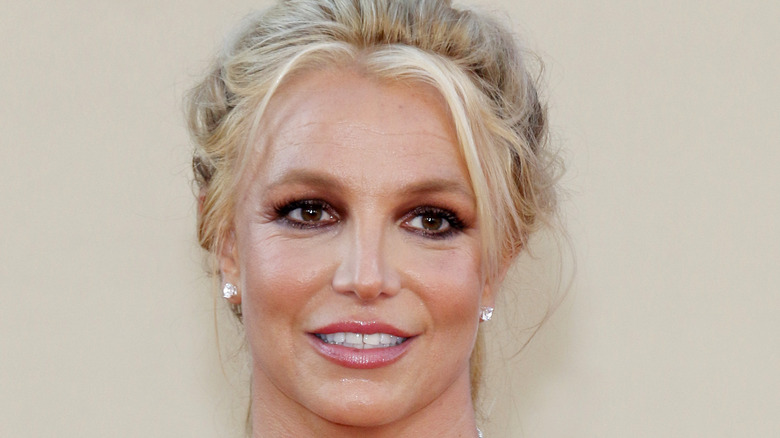Everything We Know So Far About Britney Spears' Pregnancy
Oops! She did it again! Britney Spears, 40, announced on Instagram earlier today that she is expecting a child with fiancé Sam Asghari, 28. Though marriage has not been reported, the pop star did refer to Asghari as her husband, saying, "My husband said 'No you're food pregnant silly!!!' So I got a pregnancy test ... and uhhhhh well ... I am having a baby."
Spears currently has two sons with ex-husband Kevin Federline: Sean Preston, 16, and Jayden James, 15. "If 2 are in there ... I might just loose [sic] it," she added.
In the post, Spears also opened up about suffering from perinatal depression during a previous pregnancy. She didn't clarify whether the depression occurred during one or both of her pregnancies with her sons, but wrote, "I have to say it is absolutely horrible." She expressed gratitude for not having to keep it a "reserved proper secret" and said that she'll be doing daily yoga this time around.
Perinatal vs postpartum depression
Healthline says it's normal to experience fatigue, insomnia, emotional changes, and weight gain during pregnancy even though these can also be symptoms of depression. In addition to these symptoms, perinatal depression — which occurs during pregnancy — may involve frequent crying, changes in appetite, no longer enjoying pleasurable activities, increased anxiety, and inability to attach to the developing baby.
Postpartum depression happens after the baby is born and starts off as baby blues, which impacts 80% of new mothers. Sometime during the first 48 hours after delivery, estrogen and progesterone significantly drop, which may cause the mother to feel irritable, anxious, frustrated, overwhelmed, moody, and exhausted. Typically, these feelings subside after a couple of weeks.
After 2 weeks, baby blues can progress to postpartum depression, which affects 10 to 20 percent of new mothers. Symptoms include irritability, extreme sadness, extreme fatigue, feelings of worthlessness or hopelessness, the desire to eat or sleep more or less than usual, inability to concentrate, intense anxiety, and disinterest in the baby.
Meanwhile, postpartum psychosis affects 1 to 2 of every 1,000 new mothers. Symptoms include hallucinations, delusions, suicidal ideation, and thoughts about harming the baby.
If you believe you're suffering from depression during or after pregnancy, most pregnant women and new mothers benefit from medication, therapy, or a combination of both. Work with your doctor to find the best treatment for you.


